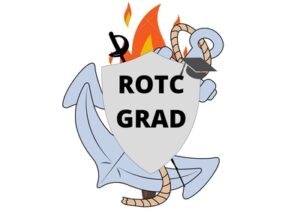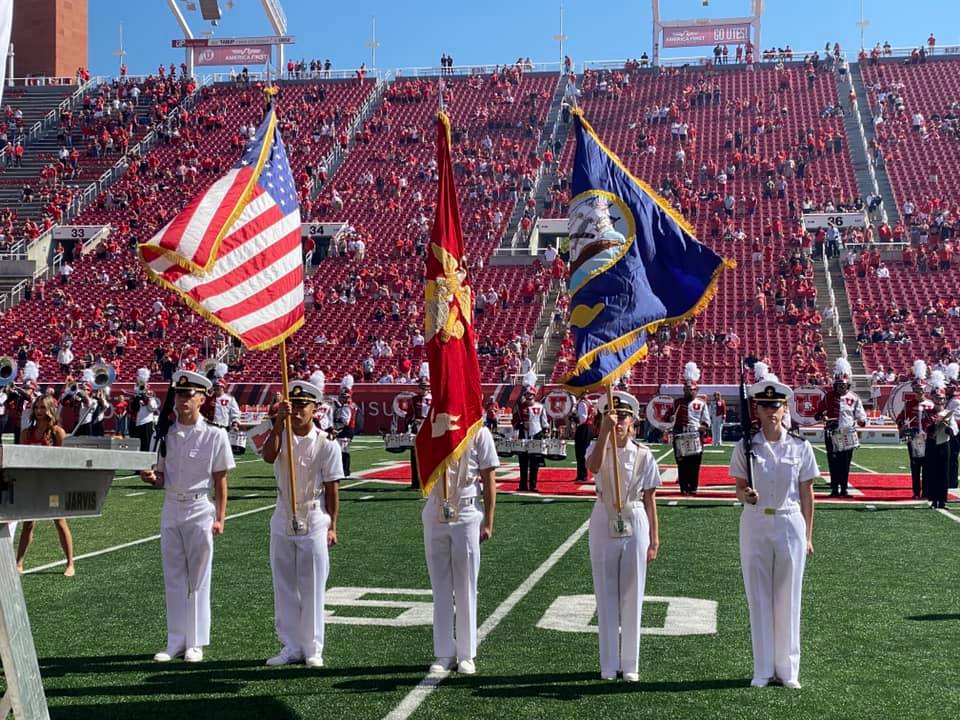
I applied for NROTC (Marine Option) the senior year of high school. At the time, I had literally no idea what this program was about. All I knew is that it related to the military and being an officer. I barely even understood the difference in the commissioning programs at the time.
Better yet, I couldn’t even find information on what any of the Navy Marine Army and Air Force ROTCs were like. I’m writing this article to help answer all your questions and to save you time and research so you’re not confused by the end of this.
What is NROTC?
NROTC stands for Naval Reserve Officer Training Commissioning. It’s a 4 year college program that, once selected, pays for all tuition costs up to $180,000. Aspiring Marine Officers may commission through NROTC as well. It requires additional time commitments in the early mornings a couple days a week with some afternoon training. Midshipman take military science classes to learn about history and leadership. After graduating, midshipman serve 4-5 years active duty.
What is NROTC like?
Day to day life in Navy ROTC (NROTC) is similar no matter what college you go to. Weekly workouts with the unit take place Monday mornings and all midshipman take Naval Science classes each semester for all four years. Navy option midshipman classes ranging from topics on Seapower and Maritime Affairs, Navigation, Naval History and a few others.
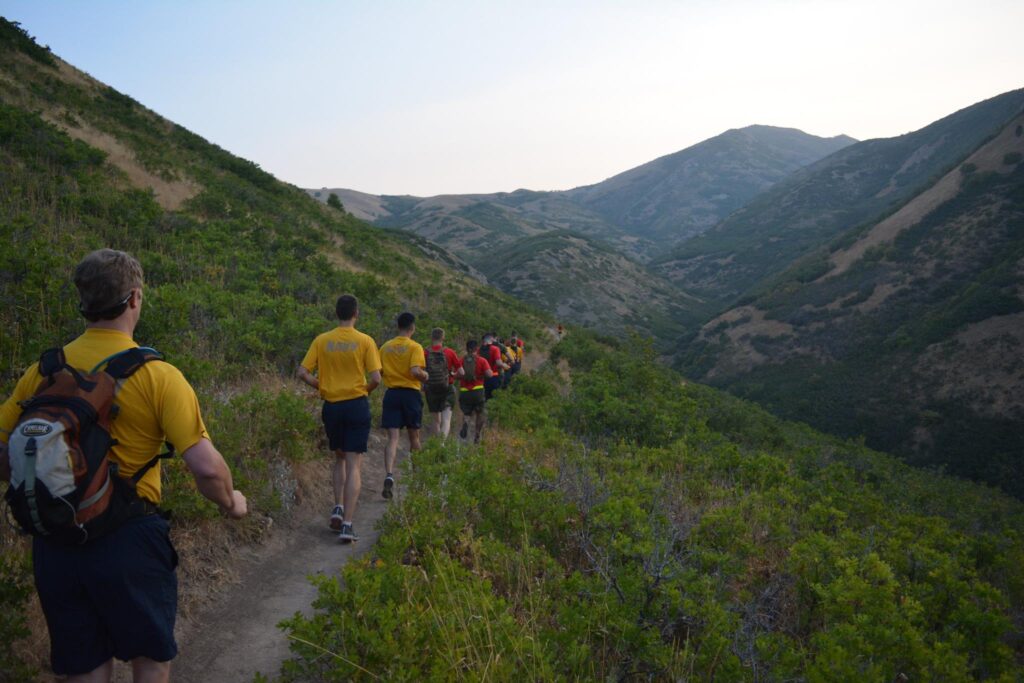
Marine Option midshipman take classes on Maneuver Warfare, Leadership and Management, Ethics, and USMC history. Throughout the four years, some classes are combined between Navy and Marine midshipman.
Every Thursday is uniform day. This means wearing your Service Bravos or Khaki uniform. They aren’t the most comfortable, but everyone in your college classes thinks you look cool.
Lab Days
Labs are two hour blocks, usually on Thursdays where you conduct unit level training at your ROTC building. Some lab trainings are super eventful where you learn combat casualty care, and some are mundane topics like mandatory traffic safety classes. Either way, it’s a great time to come together as a unit right before the end of the week. For my unit, our labs consisted of room clearing tactics, Brazilian jiu jujitsu, paintball, potluck meals, leadership reaction course challenges, and more. Often times, midshipman above freshmen year are delegated to plan these labs and work with outside organizations to make it happen. This in itself is meant to help develop individual leadership.
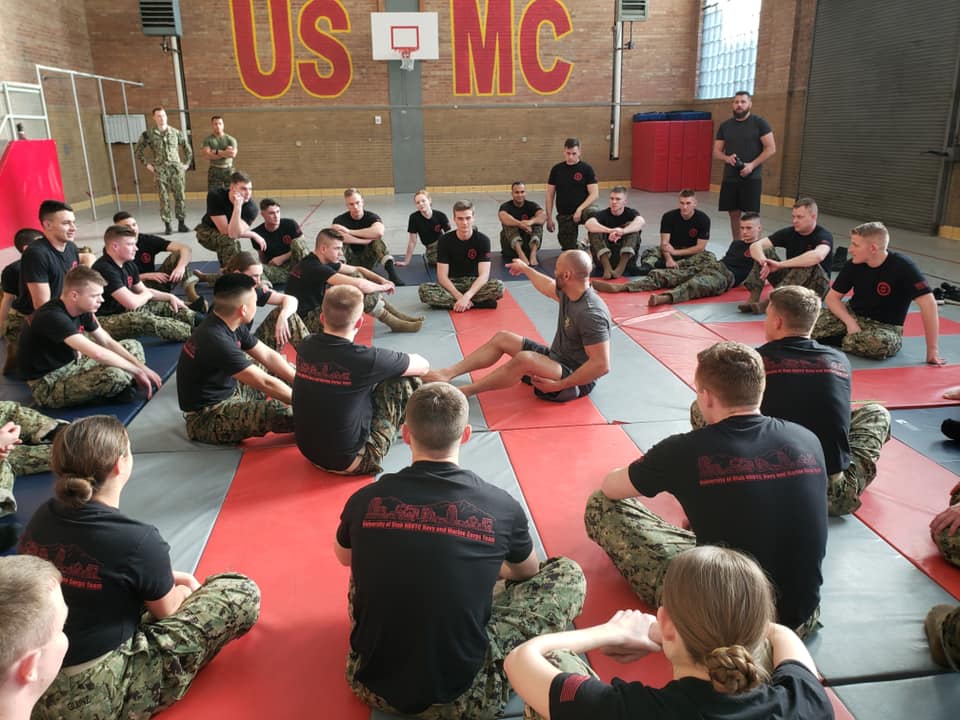
Some weeks in NROTC are busier than others. Some units practice drill in the spring semester to prepare for a drill competition against other schools.
Are all NROTC Units The Same?
The biggest difference between NROTC units is how busy they are. While all units workout together weekly, conduct naval science classes and prepare MIDN for the fleet, some units keep their midshipman busier with extra billet responsibilities and drill practice based on the instructor leadership.
After I graduated this program, I had quite a few friends from different schools commissioned the same route as me. Some of us had vastly different experiences while some of us had more of the same, which I’ll talk about in this section. To really know the difference between Marine and Navy midshipman life in NROTC, check out this article.
How Leadership Affects Each Unit Individually
The biggest difference between every unit is going to be who runs it, and what type of climate they said for everyone else. Some units like to drill multiple times a week and it make you think that you should prioritize winning drill competitions instead of focusing on academic studies.
Others don’t have you stand duty where you have to unlock the doors and put up the flags every morning. If you love the guys that run your unit, then you will want to hang around them all day and soak up their knowledge and experience. If you have toxic leadership that likes to power trip college kids for not actually having been in the military yet, then it turns into something you want to avoid until you have to show up for something.
All units have advanced camp and OCS prep classes.
Every unit across the country will have the resources for you to be successful at your Officer candidate school, whether it’s in the army or Marine Corps. The quality of these classes is almost the same, since it’s usually run by drill instructors or personnel that has been through this pipeline.
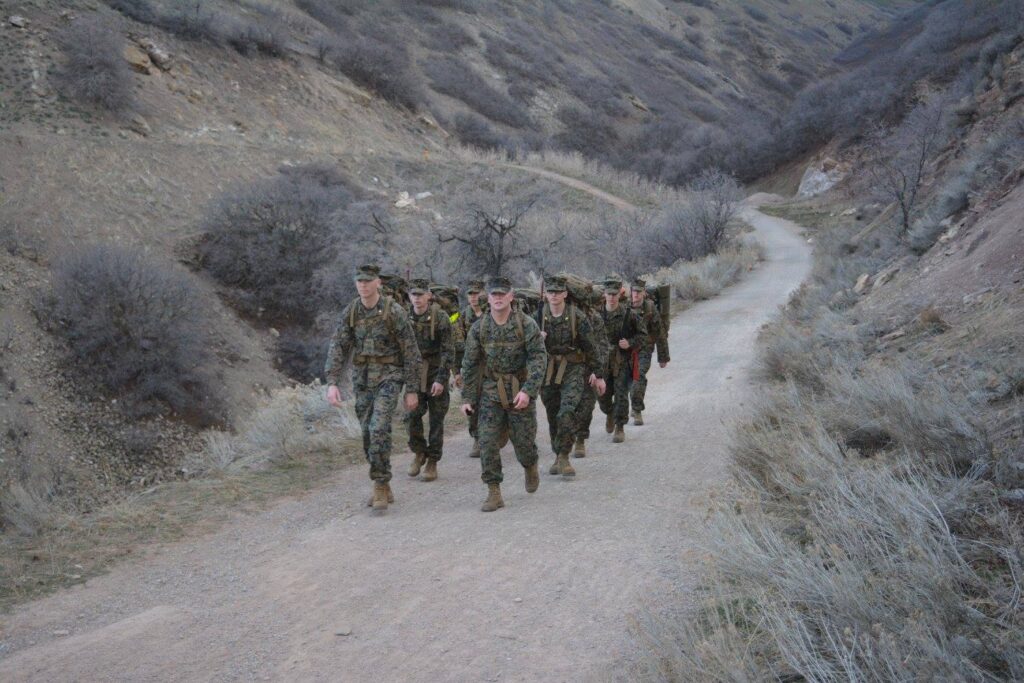
The most useful resource I got out of an ROTC where these OCS prep classes. Regardless of what branch, these consist of military knowledge classes that they teach you, doing circuit workouts that mimic the OCS environment, and occasionally Similar Way in Air Drill instructor environment with yelling and attention to detail games.
How is NROTC different than boot camp?
NROTC is not boot camp. When you show up as a freshman in college for the first day, they run you through a three day mock boot camp environment to teach you discipline, moving with purpose, and instant obedience to orders from senior members.
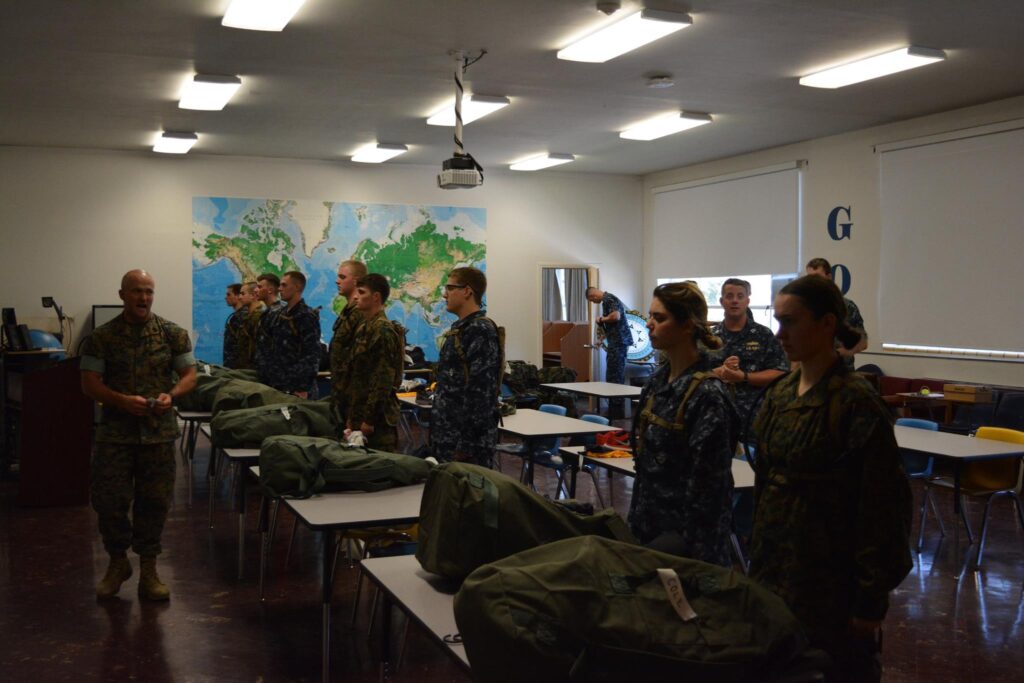
It’s usually conducted on the University campus, where are you work out with your drill instructor, and receive basic classes at your unit relating to customs and courtesies of the military. It’s a humbling three days, but you learn a lot about yourself and where the standard lies.
Midshipman don’t go to any traditional form of boot camp unless your a Marine Option. More often than not, midshipman will go to NSI (New Student Indoctrination), which is a three week course at Great Lakes that isn’t meant to have high attrition rates nor is it considered boot camp. For main differences between Marine OCS and boot camp, see this article. High schoolers that receive the NROTC scholarship will attend this course a couple weeks before showing up to their NROTC unit. Some of it resembles a boot camp environment, with yelling and instilling discipline, but it’s main focus is to teach basic military fundamentals specific to the Navy (customs, courtesies, naval history, basic swim qualification etc).
The summer of your junior year is when Marine Option midshipman go to 6 week Officer Candidate School (OCS). This is the Marine Officers version of boot camp. You’ll take classes at your NROTC unit called “Bulldog” every Friday morning (it won’t conflict with your college schedule) and you’ll learn how to prepare mentally and physically for OCS. By the time I showed up for OCS, I felt extremely prepared for the next 6 weeks.
How do I Apply?
You apply for NROTC through an officer recruiter, not an enlisted one. Some recruiters won’t tell you that because they want you to enlist. There should be an officer recruiter at your local high school that comes by in the fall season. If you don’t think you have one or are not aware, you could call the nearest local NROTC unit and they’ll put you in contact with someone that will give you information on it.
My enlisted recruiter office was actually really helpful. I explained to them I wanted to go the officer route and they forwarded me contact info for the officer recruiters.
You can apply for NROTC while in college. A lot of my classmates found out about the program when they first showed up to the university and walked into the NROTC unit and got set up with the process.
You can join up until your junior year of college typically, but I do know some seniors that picked up a scholarship for their last year as well (this also means you can apply after you go to community college and transfer to a university). Don’t feel discouraged you don’t get a scholarship right out of high school, here’s how the process works if you reapply.
If you decide to join the Navy ROTC take commission as a naval officer, you have to study a major that is on their tier list. Below is a table of all the majors you are eligible to study while in the program. One great benefit of being a marine option in navy RTC is that you can major in anything you want.
Important Note: You can go to any college that has a NROTC unit on campus or a college that is within 60-80 miles from the unit. A lot of guys went to an adjacent school that was 10 minutes away from the college that had the unit on campus.
How do I become competitive for a NROTC scholarship?
When I was applying for the scholarship in high school, a lot of candidates had already done JROTC leading up to the final selection process. The one benefit of doing this program in high school is the ability for the personnel doing the application process. However, I still got selected even though I didn’t have a background in JROTC.
Learn how to articulate how your past experiences have made you a better person in the leader you are today. Every interview question they will ask you will come back to the essence of this team. There are some really good interview questions you can Google to practice. I found a few really compelling interview questions and recorded myself answering them a few times, just so I could be confident in what I was talking about and be right to the point.
Get a pull up bar for your doorway or start getting really good at push-ups and sit ups. You’ll have the opportunity to take several fitness test throughout your application process. There’s a lot of room to improve your score before the board of selection finalizes your metrics. I did cross country and track in high school, so I was pretty good with running. However, start working on your 1.5 and 3 mile runtime if that is a weakness of yours.
When you run your fitness test, find ways to stand out. When the pool of applicants would run a fitness test, I would finish my run time as fast as I could and then immediately run back to finish with people who weren’t done yet. I was sprint all the way back to the runner at the very end and encourage them to finish strong. This was a really small, but significant way to show that I was willing to lead despite being physically exhausted.
Conclusion
Being competitive for a NROTC scholarship doesn’t mean just standing out on paper. I didn’t have the most outstanding GPA or SAT score, but the leader ship was able to evaluate me on the premise of my character, who I was as a person, and my ability to communicate that to them in person. You’ll find a lot of information online about how competitive and hard it is to get a scholarship, but at the end of the day what matters is that you do your absolute best to put yourself out there in front of your evaluate her‘s, and put the effort into articulating why he will be a good leader.
They don’t expect you to be a perfect leader when you apply for this process, what they need to see is that you have the potential to become a good leader because you have virtuous character traits that they’re looking for.
Thanks for reading! If you have any other questions or comments, feel free to reach out to me at do youculture@gmail.com and I’ll do my best to respond. Until then, stay tuned for the next article!
